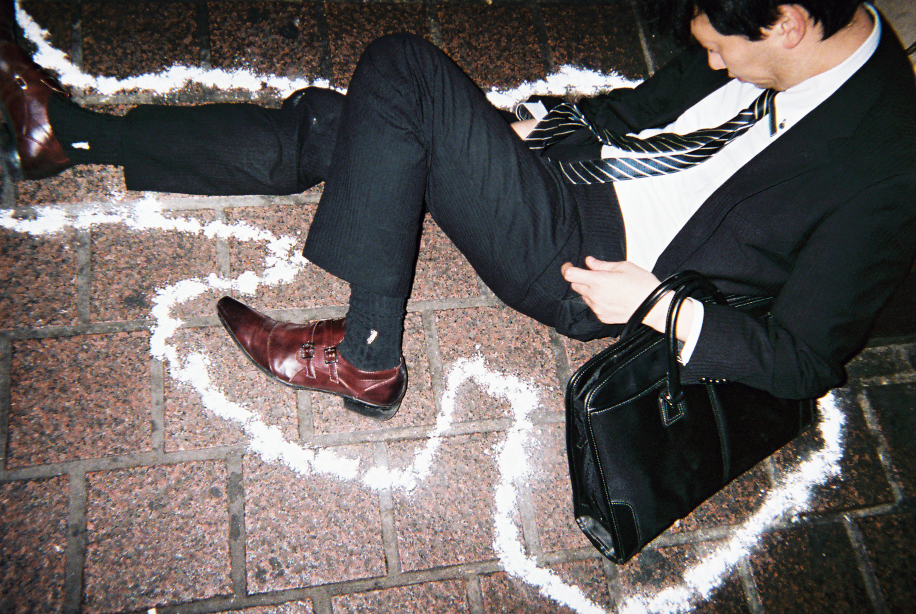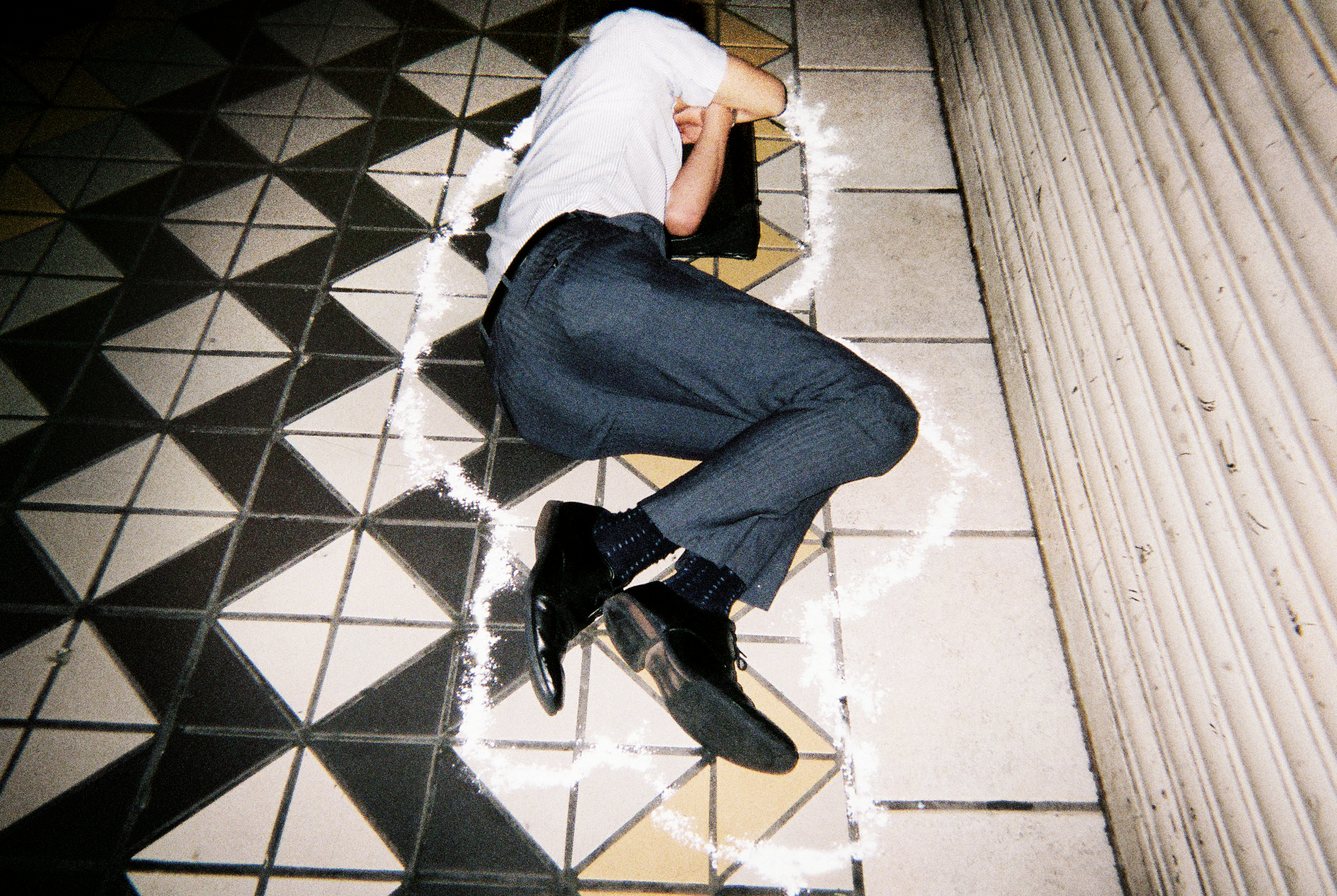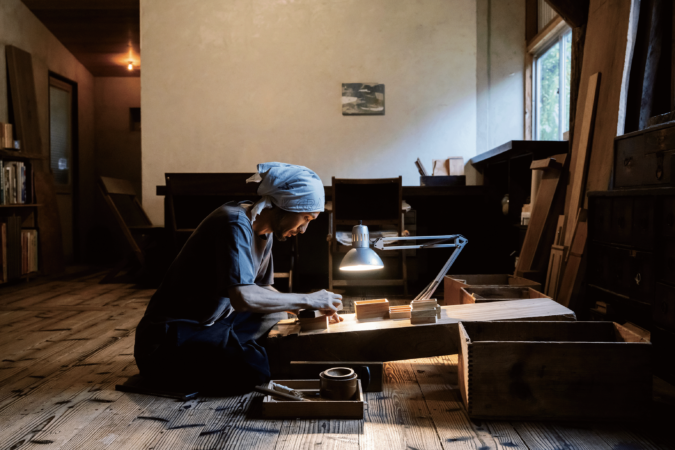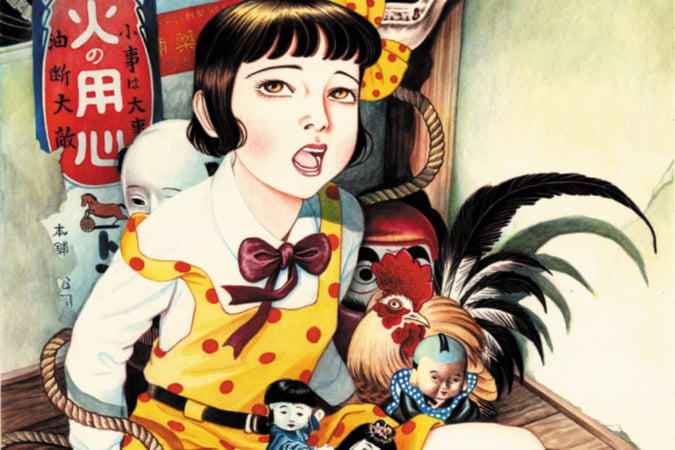‘Salaryman’, a Life Apart
In this feature film, Allegra Pacheco explores the impact of an existence dedicated to work, on both employees and their family.

© Allegra Pacheco
What hides behind these two-coloured figures, lying down still dressed in their shirt and suit, sometimes on a bench and other times directly on the pavement, once the bars have closed and the trains have stopped running? This is the question that director Allegra Pacheco seeks to answer in her feature film Salaryman.
They are men between two worlds, between two lives with a relentless pace imposed by Japanese society. Theirs is a life by subtraction, in which the cardinal values of work and team spirit will always prevail over personal fulfilment and family.
To examine this figure —who nevertheless tends to be gradually questioned by younger generations with their different aspirations— Allegra Pacheco surrounds these inert bodies with white powder, like bodies of victims being studied by detectives. To try to understand the workings of a system that places limitations and constraints upon people, the director identifies the points of connection but also of difference between actively operating businessmen and others who have retired. She embarks on their everyday journeys that run like clockwork with metronomic precision.
Shedding light on women
However, Allegra Pacheco questions the partners of these men who are often absent from the home and barely present for their children except for the key stages in their education, and this is perhaps where Salaryman stands out from other films on this topic. It is a life of solitude, of anticipation, in which inevitability wins out: the work of salarymen is dedicated to the performance of Japanese society, and it is relentless.
The filmmaker also addresses the lesser known figure of the ‘office lady’, the salaryman’s female counterpart and often considered inferior, but one that is also assigned a predetermined role. The two figures are unified by their subservience to power.
Salaryman (2021), a film directed by Allegra Pacheco, can be viewed on a dedicated website.

© Allegra Pacheco

© Allegra Pacheco
TRENDING
-
Hiroshi Nagai's Sun-Drenched Pop Paintings, an Ode to California
Through his colourful pieces, the painter transports viewers to the west coast of America as it was in the 1950s.

-
A Craft Practice Rooted in Okinawa’s Nature and Everyday Landscapes
Ai and Hiroyuki Tokeshi work with Okinawan wood, an exacting material, drawing on a local tradition of woodworking and lacquerware.

-
The Tattoos that Marked the Criminals of the Edo Period
Traditional tattoos were strong signifiers; murderers had head tattoos, while theft might result in an arm tattoo.

-
‘Shojo Tsubaki’, A Freakshow
Underground manga artist Suehiro Maruo’s infamous masterpiece canonised a historical fascination towards the erotic-grotesque genre.

-
‘Seeing People My Age or Younger Succeed Makes Me Uneasy’
In ‘A Non-Conformist’s Guide to Surviving Society’, author Satoshi Ogawa shares his strategies for navigating everyday life.





